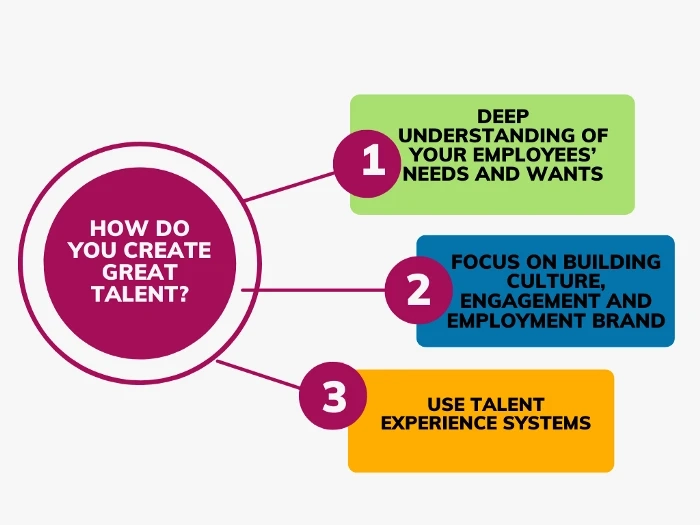Long gone are the days of “pre-hire to retire” where an employee stays in the same organisation for 20 years with the expectation that they’ll be rewarded for their hard work and loyalty (Lurie, 2018).
There is a drastic shift from the baby boomers to the millennials. This is seen in the shift in work trends and the way we work which has caused organisations to scramble to find the best solution to find, keep and manage their employees.
‘OK, Boomer’
The recent meme of ‘OK, Boomer’ has further encapsulated the growing gap between the two generations. Millennials have been using this to dismiss the ideals of past generations.
What this means for the workplace is that millennials’ needs and wants in the workplace have changed and they do not want the baby boomers to tell them the ideals of the workplace. They now want and need different things from organisations like managing their own talent experience at work.
Future of Work: The Switch from Talent Management to Talent Experience
So, with the new generation entering the workplace, companies are no longer satisfied with mere end-to-end talent management systems. The switch to Talent Experience has surfaced with the focus being on employees and enabling them to take charge of their career paths.
‘Digitalisation transformation’ has brought further changes to business as CEOs now are focused on upskilling their workforce to be agile with the spotlight being on culture, engagement and employment brand (Bersin, 2020).
It is no longer an HR problem but a company problem. With people shortages and a lack of skills in every industry, businesses are now striving to improve employees’ lives and experiences.
But what is Talent Experience?
“Talent Management platforms are for HR. Talent Experience platforms are for employees”.
- Josh Bersin
Talent Experience Management is collecting data and using it to connect and personalize every interaction for every employee to be more productive and improve their career, development and growth at work (Montesa, 2019).
“94% of employees stated that they would stay with a company longer if the company invested in their individual careers. 49% want to learn only when they need to learn.”.
With Talent Experience, employees will have their needs addressed and fulfilled to be more motivated at the workplace by having more control over their careers. This will in return help sustain the business when organisations can retain and develop key talents.
With Talent Experience, HR will also be able to know what “good” looks like and find the right candidates for the right jobs faster, improve productivity and engage and grow employees. Plus, the organisation gets a good overview of the entire workforce with valuable insights to make better talent decisions.
This is what “people-driven” businesses should be about. A safe space for employees to be inspired, feel safe and well trained to then translate into creating remarkable products and providing excellent service.
How do you create a great Talent Experience?
1. Deep Understanding of Your Employees’ Needs and Wants
It is essentially a philosophy of understanding the emotional, physical and career needs of your employees rather than the pragmatic and functional aspects.
By being people-driven and viewing employees from a human perspective instead of a work resource, this returns to the human aspect of Human Resources.
Learn More: 3 Points from Josh Bersin on Creating Great Talent Experience
0


